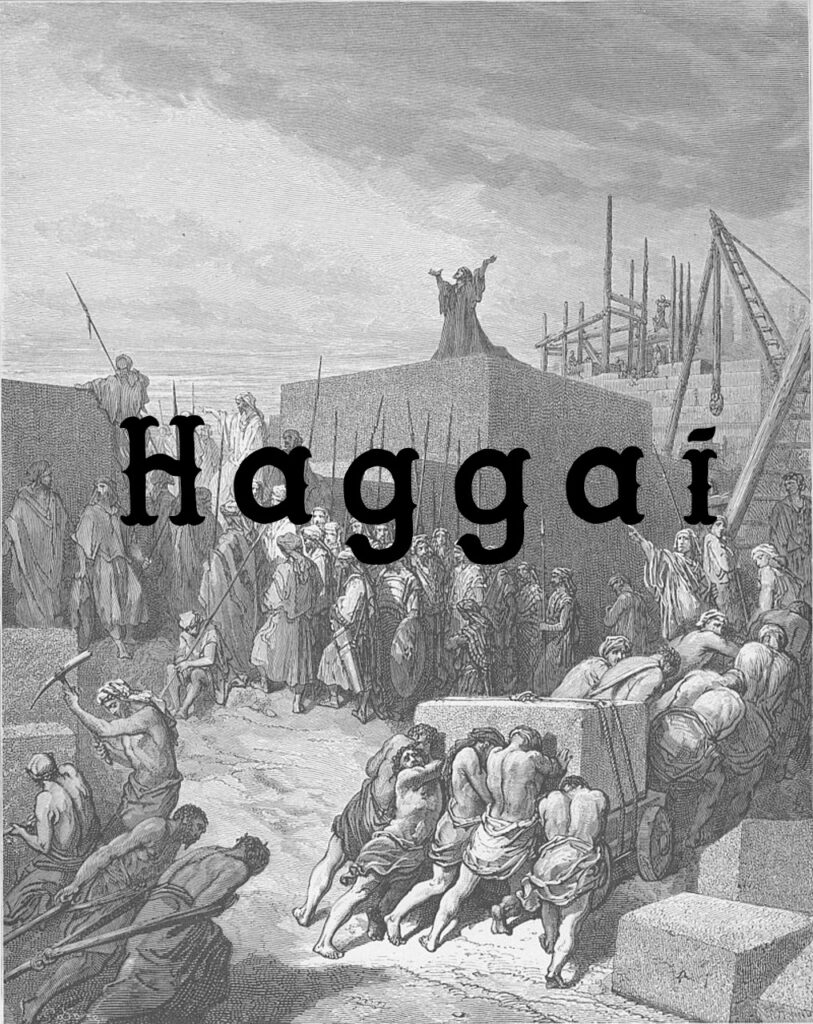God’s Blessings for an Obedient People 2:10-19

10 On the twenty-fourth day of the ninth month, in the second year of Darius, the word of the LORD came by Haggai the prophet, 11 “Thus says the LORD of hosts: Ask the priests about the law: 12 ‘If someone carries holy meat in the fold of his garment and touches with his fold bread or stew or wine or oil or any kind of food, does it become holy?'” The priests answered and said, “No.” 13 Then Haggai said, “If someone who is unclean by contact with a dead body touches any of these, does it become unclean?” The priests answered and said, “It does become unclean.” 14 Then Haggai answered and said, “So is it with this people, and with this nation before me, declares the LORD, and so with every work of their hands. And what they offer there is unclean.
15 Now then, consider from this day onward. Before stone was placed upon stone in the temple of the LORD, 16 how did you fare? When one came to a heap of twenty measures, there were but ten. When one came to the wine vat to draw fifty measures, there were but twenty.17 I struck you and all the products of your toil with blight and with mildew and with hail, yet you did not turn to me, declares the LORD. 18 Consider from this day onward, from the twenty-fourth day of the ninth month. Since the day that the foundation of the LORD’s temple was laid, consider: 19 Is the seed yet in the barn? Indeed, the vine, the fig tree, the pomegranate, and the olive tree have yielded nothing. But from this day on I will bless you.”
As we draw near to the end of the book, we hear God promise to bless His people (‘But from this day on I will bless you’ 2:19). Earlier in the book, we learned that God has withheld material blessings for the people of Israel due to the neglect of the temple (ch 1). Through the preaching of Haggai, the people have begun building and are now months into rebuilding. This work is a repentance—a return to the Lord—and a work of faith; now God promises to bless them.
In 2:10-19 Haggai to speaks to the priests about the spread of holiness and contamination. A sacrifice offered does not spread holiness with things it touches, but an unclean person—unclean by contamination of a dead body—does spread uncleanness. The people of Israel—because of their refusal to turn to God and obey Him by rebuilding the temple—are like an unclean person spreading uncleanness: all their works and sacrifices are unclean, and God has withheld material blessing from them as a form of discipline for their disobedience. But now the people are obeying, and God has promised to bless them.
Here we see the blessings for obedience. This is one of the many ways God helps motivate his people to holiness. Calvin, in His commentary, speaks about how God uses this method for the ‘tardy and sluggish’ to obey, but then leads his people to obey out of love and gratitude. Blessings for obedience then is especially useful for the immature believer—as we grow in our Christian maturity we learn to obey for other reasons: because we really are a new Creation; because we want to love and please God; because we are walking in the Spirit; so that we might be assured of our faith by the fruit; so that unbelievers would see and be converted.
God is a good Father who uses discipline to lead His children forward. At times He withholds blessing because of their disobedience and at times He blessings them for their obedience. Praise God for the many ways that He leads forward in holiness, faith, and love!
